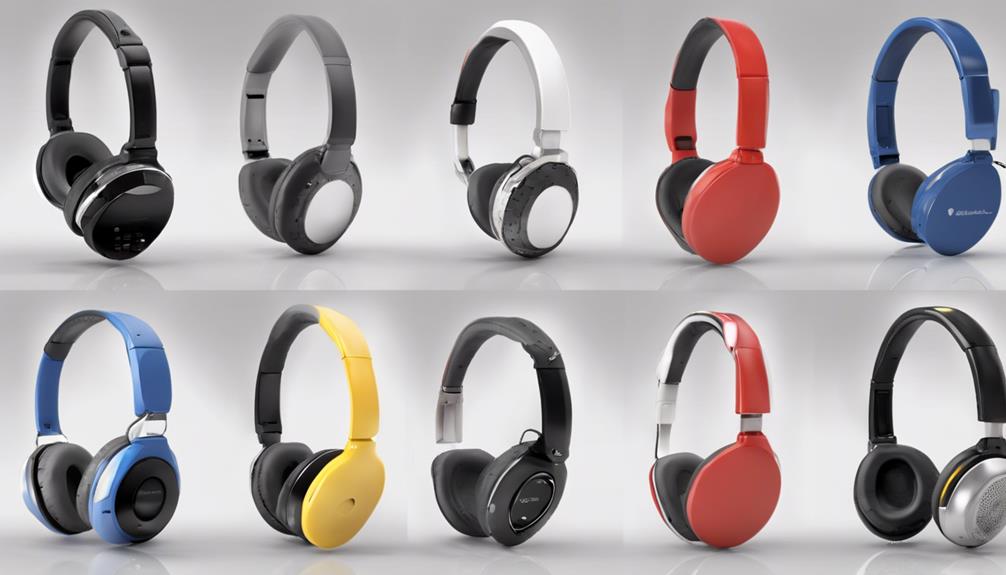So, you’re looking for top-notch cochlear implants, correct? Let’s just say that it may not be as easy as plugging in an address on Google Maps to find them.
But fear not, because in our comprehensive guide, we've done the groundwork to help you navigate the maze of options out there. From the latest technologies to the hands that wield them, we've got you covered.
Stay tuned to uncover the key to unlocking a world of sound with the best cochlear implant options available.
Key Takeaways
- Choose experienced surgeons for successful cochlear implant outcomes.
- Technology options from Cochlear, Med-El, and Advanced Bionics cater to individual needs.
- Consider costs and insurance coverage ranging from $40,000 to $100,000.
- Aftercare including speech therapy and family involvement is crucial for optimal results.
Local Cochlear Implant Clinics
At local cochlear implant clinics in Houston, TX, we provide specialized evaluation, surgery, and follow-up services for individuals of all ages with severe to profound hearing loss. Our cochlear implant team is dedicated to helping patients navigate the process of receiving a cochlear implant, a remarkable device that can significantly improve hearing.
The cochlear implant consists of both external and internal components. The external part includes a microphone, speech processor, and transmitter that captures sound and sends it to the internal part. The internal component, surgically placed under the skin, includes a receiver-stimulator that converts sound into electrical signals and sends them to the auditory nerve. This advanced technology is particularly beneficial for individuals with sensorineural hearing loss, where damage to the inner ear prevents sound signals from reaching the brain effectively.
Our clinics work closely with reputable companies like Cochlear Corporation, Med-El Corporation, and Advanced Bionics to ensure our patients receive top-quality cochlear implant systems for optimal outcomes.
Choosing the Right Surgeon

When considering cochlear implant surgery, the surgeon's experience and expertise play a crucial role in determining successful outcomes. It's essential to look for a surgeon with a high success rate in cochlear implant insertions. Consider surgeons who are board-certified and have specialized training in otolaryngology and neurotology for optimal results.
Checking patient reviews and ratings can provide insight into the quality of care provided by the surgeon. Seeking recommendations from trusted sources such as other healthcare professionals or individuals who've undergone cochlear implant surgery can also guide your decision-making process.
Technology and Implant Options
How do cochlear implants utilize cutting-edge technology to enhance auditory function and improve sound perception?
Cochlear implants leverage advanced technology to directly stimulate the auditory nerve, bypassing damaged hair cells in the cochlea and providing enhanced sound access. Here are key points regarding technology and implant options:
- Internal and External Components:
Cochlear implants comprise internal devices surgically placed under the skin, connected to an electrode array within the cochlea, and external processors including a microphone, speech processor, and battery for sound conversion and transmission.
- FDA Approval:
Cochlear implants have FDA approval for children as young as 9 months with profound hearing loss, underscoring their safety and efficacy, particularly for younger populations.
- Range of Options:
Three main cochlear implant companies in the U.S., including Cochlear Corporation, Med-El Corporation, and Advanced Bionics, offer various implant options to cater to individual needs.
- Auditory Nerve Stimulation:
Cost Considerations and Insurance

Moving on from the technology and implant options available for cochlear implants, understanding the cost considerations and insurance coverage is crucial for individuals considering this auditory enhancement solution.
The cost of cochlear implants typically ranges from $40,000 to $100,000, encompassing expenses for evaluation, surgery, and post-operative care.
Insurance coverage for cochlear implants varies among providers, with many plans offering coverage under specific conditions. Medicaid often covers cochlear implants for eligible children and adults in most states, helping to reduce out-of-pocket costs.
Additionally, Medicare provides financial assistance for beneficiaries who meet specific criteria for cochlear implant coverage. Some private health insurance companies also cover cochlear implants, although the specifics of the coverage may differ, necessitating verification before undergoing the procedure.
Considering these factors is essential in planning for the financial aspects of cochlear implantation, and exploring available options for insurance coverage and potential financial assistance can help alleviate some of the associated costs.
Aftercare and Rehabilitation
Upon completion of cochlear implant surgery, engaging in structured rehabilitation, including speech therapy and auditory training, is vital for optimizing speech recognition and language development. To ensure successful outcomes post-surgery, here are key aspects of aftercare and rehabilitation:
- Speech Therapy: Sessions focusing on improving speech recognition and language development.
- Follow-up Appointments: Essential for monitoring progress, adjusting settings, and addressing any emerging issues.
- Auditory Training: Helps the brain adapt to processing sounds through the implant.
- Family Involvement: Crucial for supporting the individual's auditory development and maximizing the benefits of the cochlear implant.
Rehabilitation programs may vary in duration and intensity depending on individual needs and progress. Family involvement plays a significant role in the process, fostering a supportive environment for the individual's auditory development.
Regular follow-up appointments are key to tracking progress, making necessary adjustments, and ensuring optimal outcomes in speech recognition and language development.
Frequently Asked Questions
What Is the Most Reliable Cochlear Implant?
When it comes to cochlear implants, the most reliable option may vary based on individual needs and preferences. Cochlear Americas, Advanced Bionics, and Med-El are the three FDA-approved companies providing cochlear implants in the U.S. Each brand offers high-quality devices with similar success rates.
Consulting with an audiologist or ear, nose, and throat specialist can help determine the best fit for your specific situation.
What Is the Best Hospital for Cochlear Implants in the Us?
When it comes to cochlear implants in the US, the best hospital should prioritize patient satisfaction and have a specialized program with experienced teams. Look for top-rated surgeons specializing in cochlear implant procedures, comprehensive follow-up care, and access to advanced technology.
Consider hospitals offering support services and a collaborative approach for optimal outcomes. Advanced technology, research, and a multidisciplinary approach are key factors in choosing the best hospital for cochlear implants in the US.
How Much Will Medicare Pay Toward a Cochlear Implant?
We've got your back! Medicare typically covers 80% of the cost for cochlear implant surgery. Patients are usually responsible for the remaining 20%, which can still add up.
Medicare may also help with pre-surgery evaluations and post-operative care. The coverage for devices and accessories can vary, so it's crucial to confirm details with Medicare.
Knowing these guidelines can assist in planning for the financial side of the procedure.
What Are the Three Brands of Cochlear Implants?
Sure!
The three brands of cochlear implants in the U.S. are Cochlear Corporation, Med-El Corporation, and Advanced Bionics. Each company offers unique features and technology in their cochlear implant systems.
Cochlear Corporation is known for its innovative sound processing technology. Med-El Corporation focuses on research and development to improve hearing outcomes. Advanced Bionics offers high-performance systems with customizable options.
These brands provide a range of choices for individuals with hearing loss.
Conclusion
In conclusion, as we navigate through the world of cochlear implants, we're reminded of the power of innovation and collaboration in healthcare.
By choosing the right surgeon and staying informed about technology options, costs, and aftercare, we can make confident decisions for ourselves or our loved ones.
Let's continue to explore the possibilities and support each other on this journey towards better hearing and improved quality of life.










